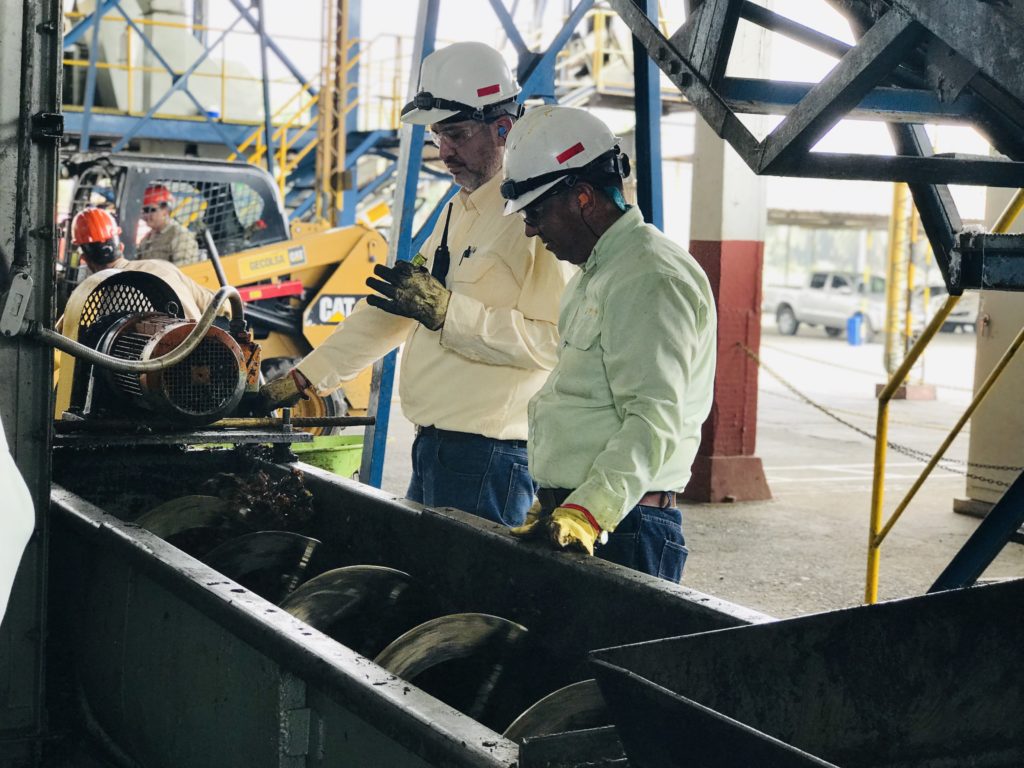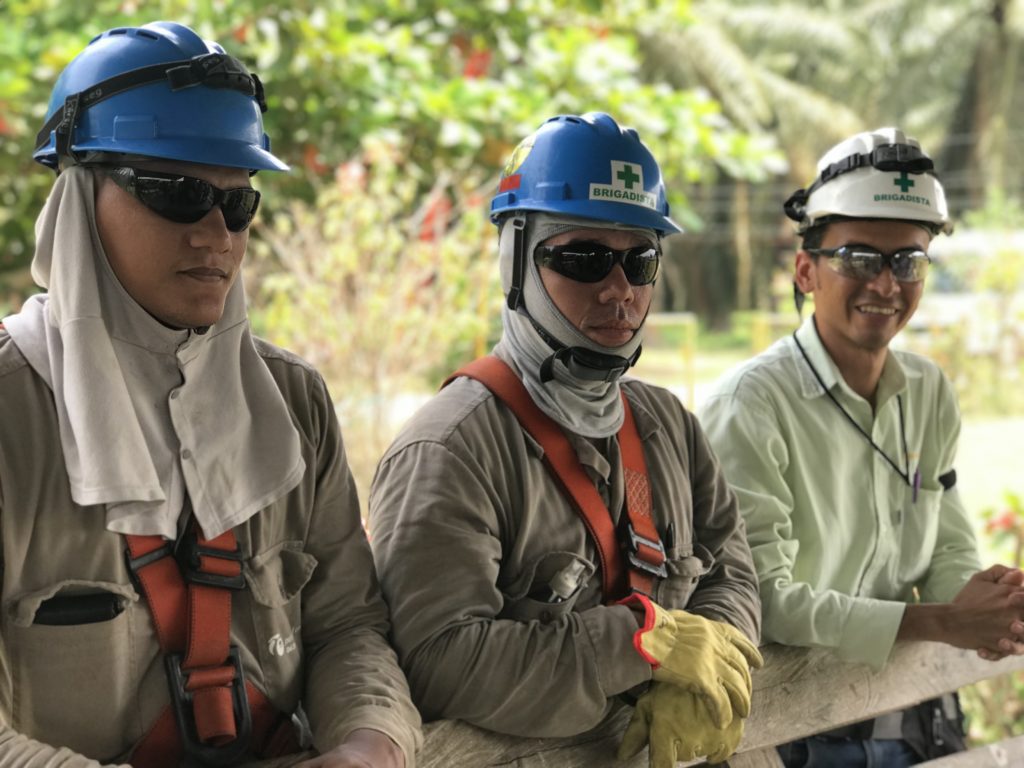Palma Futuro is a project funded by the U.S. Department of Labor (USDOL) and implemented by Partners of the Americas (POA) and its partners, Social Accountability International (SAI) and J.E. Austin Associates (JAA). Palma Futuro aims to strengthen the capacity of private sector partners in the Colombian and Ecuadorian palm oil sector to implement a robust and sustainable social compliance system, and increase understanding, at regional and global levels, of promising practices in social compliance systems in palm oil supply chains.
Assessing Labor Performance for Palm Oil Extractors, Farmers
As a first step toward improving social compliance and working conditions in the palm oil industries in Colombia and Ecuador, SAI conducted baseline assessments of several large palm oil extraction companies, measuring their labor performance and the maturity of their management systems. Faced with travel restrictions due to COVID-19, SAI adapted our assessment methodology to be conducted remotely, based on best practices developed by SAAS that incorporate video site visits and private video interviews with workers.
The baseline assessments revealed where companies had gaps in compliance with labor standards (such as no child or forced labor, fair wages and working hours, and freedom of association) as well as gaps in their social compliance management systems. With these identified gaps in mind, SAI is now working to provide targeted training on labor and management system topics to the Social Performance Teams (SPTs)—representative groups of managers and workers in each company—and working with these teams to develop customized improvement plans.

As part of their improvement plans, Palma Futuro’s partner companies need to build capacity to recognize and mitigate labor risks internally and help their suppliers do the same. To support this, SAI is training key personnel in each company to become trainers themselves so they can educate other employees and their suppliers on key labor rights topics—such as preventing and recognizing forced labor conditions and avoiding child labor, among others—and conduct Social Compliance System assessments for their suppliers. The next phase of this project is ongoing, focusing on labor performance and management system assessments deeper in the supply chain, including the smallest family farms.
Engaging Workers through Mobile Surveys
When Palma Futuro’s ability to conduct worker engagement directly through site visits and interviews was disrupted by COVID-19, SAI developed a remote worker engagement survey to help fill the gaps. In partnership with the supply chain stakeholder engagement technology company Ulula, SAI used mobile surveys and interactive voice recording (IVR) surveys to ask workers about how the pandemic had affected them, with particular attention to impacts on labor rights.
At the time of these surveys, most responses indicated that workers experienced negative effects in their mental health, their finances and their family environment. The effects were significantly different between women and men, with women expressing the greatest impacts on their mental health and men the greatest impacts on finances. At the same time, results showed that most employees did not experience job loss or loss of income due to the pandemic, indicating that impact on mental health and finances may be more reflective of uncertainty generated by the pandemic than of tangible negative outcomes.
Through this survey, we also identified a need among workers for more information about government aid programs and labor rights. SAI used this feedback to develop information campaigns within the workplaces and farms, including COVID-19 health & safety information. SAI also responded to the information needs through an SMS campaign that shared information about accessing aid programs and reporting labor concerns and grievances.
Since the initial surveys, communities in the Palma Futuro program areas have been affected by significant COVID outbreaks and turmoil from the National Strike that lasted over a month and local security concerns. SAI is now implementing a new survey to better understand how participants’ experiences may have changed over the past 6 months.
Bridging the Divide between Communities and Industry
In addition to the worker and farmer surveys, the SAI team also engaged with the local In addition to the worker and farmer surveys, the SAI team also engaged with local community groups and leaders to understand the impacts that large palm oil companies have on the local populations and to build capacity within those communities to prevent labor abuses and hold companies accountable. To support these goals, SAI is helping to form and train “community circles”. At this time, five circles have held their first meetings, discussing, among other topics, the need to improve communication and relationships with the palm oil companies.

The first five circles were formed by direct engagement with rural communities in the department of Magdalena, Colombia. During these visits, SAI identified local leaders (typically the elected Community Action Board—Juntas de Acción Comunal, JAC—representatives), as well as engaging schools and parents to discuss challenges their communities are facing, with a focus on child labor, forced labor, and other labor issues. One key finding of a recent community circle discussion was an uptick in child labor during the COVID-19 pandemic, due to school closures and families not having access to remote schooling. SAI will continue engaging with these community circles over the coming months to facilitate local action addressing child labor and other labor-related issues. We also plan to engage many more communities across Colombia and Ecuador to form over 50 community circles representing local populations affected by the palm industry.
Funding is provided by the United States Department of Labor under cooperative agreement number IL-32820-18-75-K. 100% of the total costs of the project is financed with federal funds, for a total of U.S. $6,000,000 dollars. This material does not necessarily reflect the views or policies of the United States Department of Labor, nor does mention of trade names, commercial products, or organizations imply endorsement by the United States Government. Partners of the Americas is our leading partner.
For more information on these projects, please write to swilson@sa-intl.org
